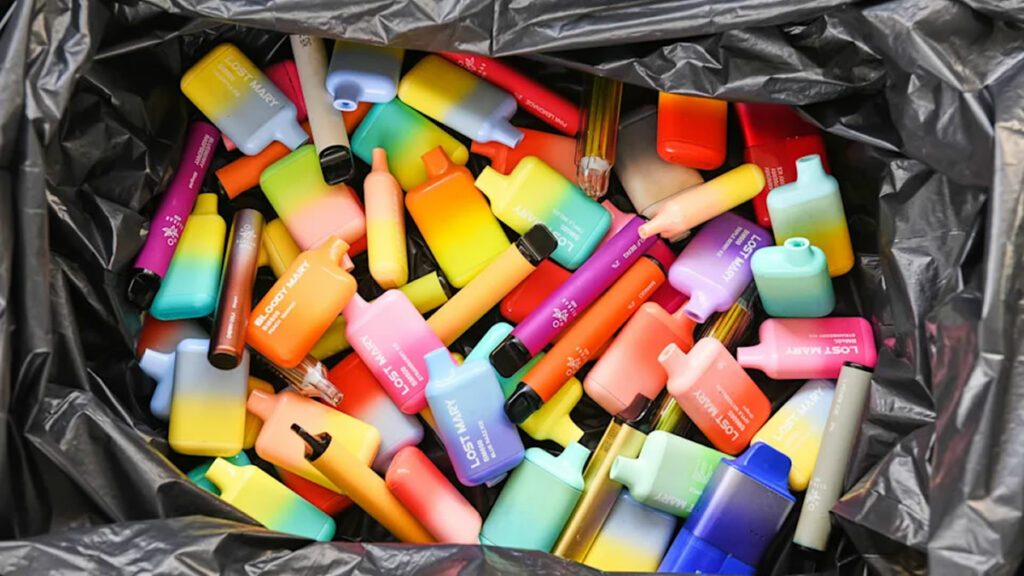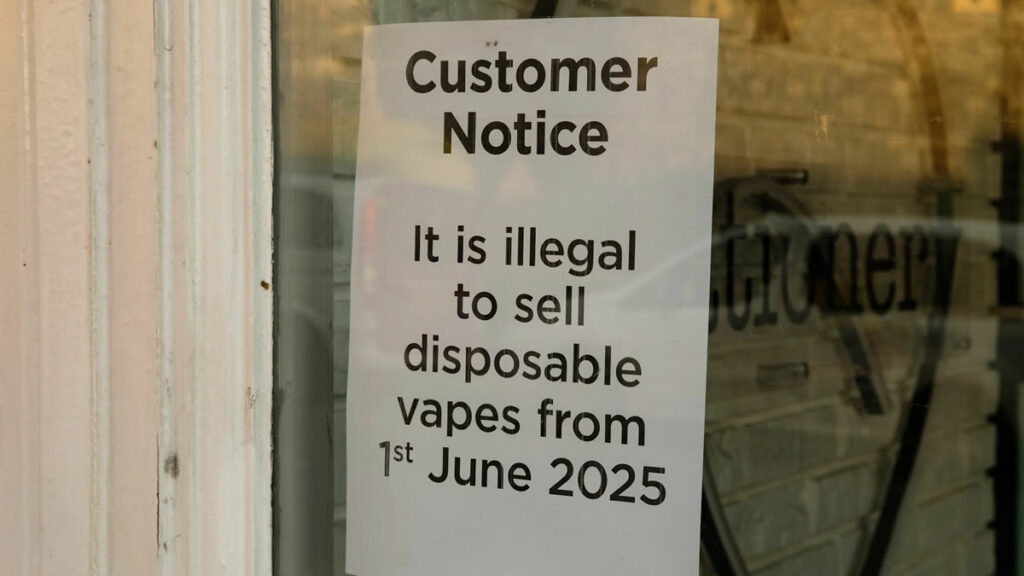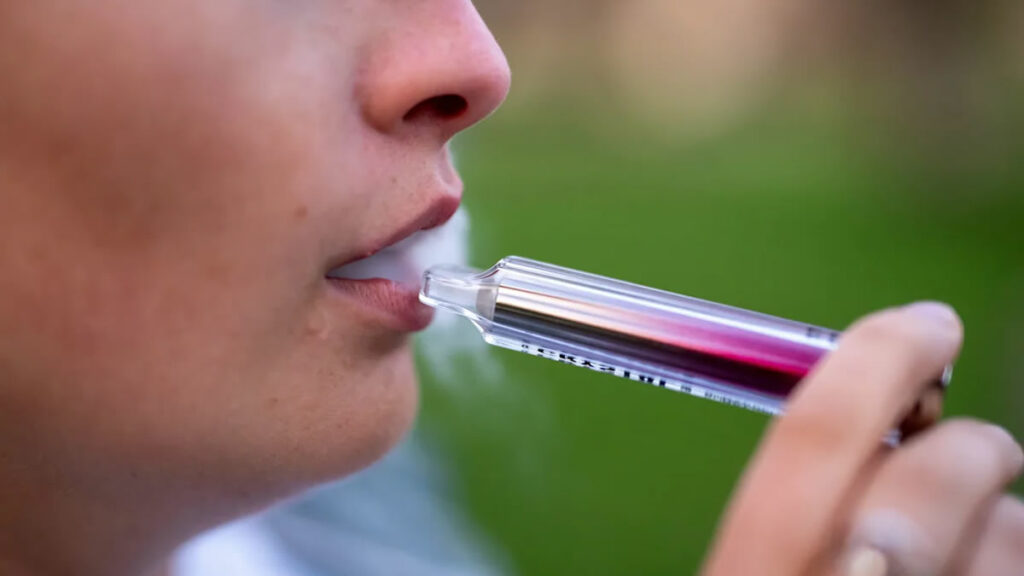The United Kingdom has turned a significant page in its approach to nicotine products. As of Sunday, June 1, 2025, a nationwide ban on the sale and supply of single-use disposable vapes has officially come into force. This landmark legislation, implemented across England, Scotland, Wales, and Northern Ireland, means these often colorful and flavored “puff bars” can no longer be legally sold by any retailer, whether in physical shops or online. The move follows months of debate and growing concerns surrounding the environmental impact of these devices and their alarming popularity among young people. But with the ban now active, many users are asking a crucial question: what happens if I’m caught *using* a disposable vape after this date? This guide unpacks the new law, the penalties involved, and what this means for vapers across the UK.
The Core of the Ban: Targeting Sales, Not Personal Use
It’s essential to understand the primary focus of this new legislation. The ban on disposable vapes is fundamentally about **prohibiting their sale and supply by businesses**. It does not criminalize the personal possession or use of a disposable vape that an individual may have acquired before the ban or, for instance, legally purchased abroad for their own consumption.
So, to directly answer the pressing question: **If you are caught using a disposable vape you already own after June 1, 2025, you will not face arrest or fines for mere personal use.** The legal responsibility and the penalties are squarely aimed at businesses – retailers, wholesalers, manufacturers, and importers – who continue to sell or supply these now-banned single-use products within the UK.
Vape expert Markus Lindblad from Haypp confirmed this distinction: “Using single-use vapes after the ban isn’t going to become illegal, it’s buying or selling vapes that’s being restricted. Entering the UK with a disposable vape is only an offence if you intend to sell it on, so as long as it’s for personal use then you’re not breaking any laws.”
Why Were Disposable Vapes Banned in the UK?
The government’s decision to implement this UK-wide ban was driven by two compelling and widely discussed factors:
1. The Environmental Crisis of Single-Use Vapes
The environmental argument against disposable vapes became undeniable. These devices, designed for short-term use and then discarded, created a massive e-waste problem.
- Staggering Waste Figures: According to government statements and research by organizations like Material Focus, an estimated 5 million to 8.2 million disposable vapes were being thrown away or littered *every week* in the UK during 2023-2024. This equates to roughly 13 every second.
- Recycling Difficulties: Disposable vapes are notoriously hard to recycle due to their integrated lithium-ion batteries, plastic casings, and mixed electronic components. The government noted that they usually need to be disassembled by hand, a slow and costly process, leading to most ending up in general waste.
- Resource Depletion and Pollution: The government called them an “inefficient use of critical resources.” Improper disposal means valuable materials like lithium are lost. Furthermore, these devices can leak harmful substances (nicotine, heavy metals) into the environment, contaminating soil and waterways and posing a risk to biodiversity.
- Fire Hazards: The lithium-ion batteries within discarded vapes can cause fires if damaged or crushed in bin lorries or at waste management facilities.
Nature minister Mary Creagh described these devices as “extremely wasteful and blight our towns and cities,” with the ban forming part of a drive to end the UK’s “throwaway culture.”

2. The Alarming Rise in Youth Vaping
A primary public health driver for the ban was the “alarming rise in youth vaping,” with disposable vapes identified as a key culprit.
- Youth Appeal: Their relatively low cost, bright and colorful packaging, ease of use, and wide array of sweet and fruity flavors made disposables particularly attractive to children and teenagers.
- Escalating Usage Rates: Despite it being illegal to sell vapes to under-18s, usage among young people soared. NHS figures for 2023 showed nearly a quarter of 11 to 15-year-olds in England had tried vaping, and almost one in ten (9%) vaped frequently. Then-Health Minister Andrew Gwynne stated that “disposables are the product of choice for the majority of kids vaping today,” and the ban aims to “reduce the appeal” of vapes to this demographic.
- Nicotine Addiction Concerns: The ease with which young people could access and use these often high-nicotine products raised serious concerns about early-onset nicotine addiction and its potential long-term impacts on adolescent brain development.
The government’s stated aim is to protect children’s health and prevent a new generation from becoming addicted to nicotine.
What Defines a “Disposable” vs. “Reusable” Vape Under the New Law?
The UK government’s guidance clearly defines what constitutes a banned single-use vape versus a legal reusable one:
- Banned Single-Use (Disposable) Vape: A vape is considered single-use if its battery cannot be recharged OR if it is not designed or intended to be refilled with e-liquid. If a device fails either of these criteria, it is banned. This applies to both nicotine-containing and nicotine-free disposables.
- Legal Reusable Vape: To be legally sold after June 1, 2025, a vape device must be **both rechargeable AND refillable**. This means it must have a battery that can be recharged (e.g., via USB) AND it must have a mechanism for refilling with e-liquid. This can be a tank that the user fills from a bottle or a system that uses replaceable pre-filled pods or cartridges, provided these replacement components are sold separately. If a device has replaceable coils, these must also be available separately.
Essentially, the law targets products designed to be used and then entirely discarded, pushing the market towards systems where the main device is kept and reused.

Penalties for Businesses Selling Banned Disposable Vapes
While personal users won’t be penalized for possession, businesses face significant consequences for selling or supplying disposable vapes after the ban. Enforcement will be carried out by local authorities (Trading Standards), the Border Force, MHRA, and the Office of Product Safety and Standards. Penalties vary slightly across the UK nations:
- England and Wales: Initial violations can result in civil sanctions like a stop notice, a compliance notice, or a £200 fine. Repeat or serious offenses can lead to unlimited fines, imprisonment for up to two years, or both, plus potential cost recovery notices.
- Scotland: A fixed penalty notice of £200 (reduced to £150 if paid within 14 days) for a first offense, with fines increasing by £200 for subsequent offenses. Court action for non-acceptance or serious cases can lead to fines up to £5,000 and/or up to two years in prison.
- Northern Ireland: No initial civil sanctions are specified. Violators could face fines up to £5,000 on summary conviction in a magistrates’ court, with further convictions potentially leading to up to two years in prison.
Impact of the Ban Announcement and Stockpiling
The announcement of the ban in January 2024 had an immediate impact. Research from University College London (UCL) published in May 2025 suggested that while overall vaping rates stayed constant between January 2024 and January 2025, there was a steep decline in disposable vape use after the announcement, particularly among 16- to 24-year-olds, whose use of disposables reportedly almost halved. Lead author Dr. Sarah Jackson commented that it was “likely that people using these products will move to reusable versions rather than stop vaping completely.”
In the weeks leading up to the June 1st ban, retailers were actively encouraged by the government to sell their remaining stock. This led to reports of consumers bulk-buying or “stockpiling” disposable vapes. Dan Marchant, managing director of online retailer Vape Club, noted a 50% to 100% increase in disposable sales, attributing it to adults relying on these products to stay smoke-free. One lawmaker, Baroness Claire Fox, even discussed her own stockpiling in Parliament, expressing concern that the government was prioritizing environmental issues over public health (by potentially making it harder for smokers to quit using a simple alternative).
The Broader Context: Health and Future Regulations
The NHS guidance states that while vaping “is not completely risk-free, but it poses a small fraction of the risk of smoking cigarettes,” primarily because vapes don’t produce tar or carbon monoxide. It also acknowledges evidence that vapers can be “twice as likely to succeed” in quitting smoking compared to those using other nicotine replacement products.
However, the long-term risks of vaping are not yet fully clear, and the rise in youth vaping has been a major catalyst for stricter regulation. The ban on disposables is part of the wider **Tobacco and Vapes Bill**, which also aims to create the “first smoke-free generation” by progressively raising the age of sale for tobacco. This bill is expected to introduce further measures to make vaping less appealing to children, potentially including restrictions on flavors, packaging, and retail displays.
Hazel Cheeseman, chief executive of Action on Smoking and Health (ASH), questioned whether the disposable ban alone would be enough to deter youth vaping, telling the BBC, “Teenagers weren’t drawn to these products because you could throw them away. They were drawn to them because they were brightly coloured, because they were cheap, and they were really, really available. All of those things will still be true on Sunday [for reusable vapes if not further regulated].”
Conclusion: A New Chapter for Vaping in the UK
The UK’s ban on disposable vapes marks a decisive shift in its approach to e-cigarette regulation. While personal use of existing disposables is not criminalized, the focus is firmly on stopping the commercial supply to tackle youth uptake and environmental waste. The success of this ban will depend on effective enforcement and the ability of the market and consumers to transition smoothly to reusable alternatives. It’s a clear signal that while vaping may have a role for adult smokers looking to quit, its appeal and accessibility to young people, along with its environmental footprint, will face increasingly stringent controls.
- India Rejects Philip Morris: No Lift on IQOS Ban - February 11, 2026
- Bangladesh Bans Vapes & Tightens Tobacco Laws in 2025 Ordinance - February 3, 2026
- Alabama Passes Bill to Ban Vaping in Public Space - January 31, 2026


